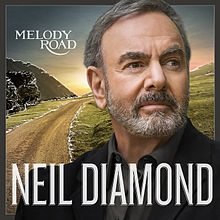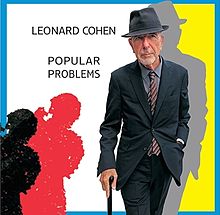
Tempest/ Bob Dylan
Genre: Singer-songwriter
Sony Music/ Rs 499
Rating: *****
THE times they are a-changin’, but Bob Dylan isn’t. At 71, having spent 50 glorious years in the recording business, the ace singer-songwriter still does regular concert tours, weaves words like a magician and churns out absolutely phenomenal albums.
When he first announced the title of his latest album, two stories did the rounds. One was that it was inspired by a similar-sounding play by William Shakespeare, and the other was that it would be his last recording effort. Blaaahhhhh, responded Dylan.
Whatever it is, there’s no denying that Dylan can easily be called the Shakespeare of songwriting. Yes, there are those who argue that his recent songs lack the sheer poetic brilliance and creative consistency of his 60s and 70s work, but he’s still crisp, prolific and highly-listenable, no doubt.
Dylan’s 35th studio album, ‘Tempest’ contains 10 songs and lasts a solid 68 minutes. Pretty long, for sure, with five numbers lasting over seven minutes. But it’s also clearly his best album in a decade, after 2001’s masterpiece ‘Love and Theft’.
Lyrically, ‘Tempest’ is one of his darkest and most vivid albums ever, filled with words and tales of gore, doom and uncertainty. Marvels like “You’ve got the same eyes that your mother does; If only you could prove who your father was,” “Your father left you, your mother too; Even death has washed its hands of you” and “If love is a sin then beauty is a crime; All things are beautiful in their time” still overflow from that magical pen.
Most songs are sung in a narrative fashion, with Dylan actually telling lengthy stories or describing landmark events. His voice, never textbook-perfect, sounds even more raw, rugged and raspy, almost like a cross between a morning brush gargle, an attack of whooping cough and bluesman Howling Wolf’s whisky-spruced wail. But it suits these songs oh-so-perfectly, making them grander and more gorgeous, even in those flashing off-key moments.
Musically, ‘Tempest’ meanders between raw blues, quintessential folk-rock, earthy country and southern American boogie. Gone are the signature harmonica solos of yore. Instead, a talented back-up band that includes David Hidalgo of Los Lobos concentrates more on guitar, keyboards, bass, violin, banjo, accordion and mandolin.
While all songs are penned exclusively by Dylan, the opening track and video song ‘Duquesne Whistle’ has been co-written with Robert Hunter, who once graced Grateful Dead tunes and also worked on Dylan’s album’s ‘Down in the Groove’ and ‘Together Through Life’.
‘Duquesne Whistle’ begins with a melodic guitar-piano riff followed by a punchy stomp, before Dylan sings: “Listen to that Duquesne whistle blowing, blowing like it’s gonna sweep my world away.” Catchy and infectious, it’s closest the album comes to Dylan’s 60s folk-rock-boogie sound, with typically-styled emphasis on the words ‘blowing’, ‘sky’, ‘alive’ and ‘head’.
The tempo slows down with the bittersweet ballad ‘Soon after midnight’, with Dylan singing “I’m searching for phrases, to sing your praises, I need to tell someone; It’s soon after midnight, and my day has just begun.” It’s a haunting melody, setting the mood for some heartbroken lines on the uptempo ‘Narrow Way’, where he sings “I can’t work up to you; You’re surely gonna have to work down to me someday.”
The nostalgic and moodily-orchestrated ‘Long and Wasted Years’ has some memorable lines. The song begins, “It’s been such a long long time, since we loved each other when our hearts were true,” and later goes on to, “I wear dark glasses to cover my eyes, there are secrets in them I can’t disguise; Come back baby, If I ever hurt your feelings, I apologise.” But the best is reserved for the song’s finale: “I think that when my back was turned, the whole world behind me burned, It’s been a while, since we walked down that long long isle; We cried on that on that cold and frosty morn, we cried because our souls were torn; So much for tears, so much for these long and wasted years.” Bravo!
‘Pay in Blood’ moves at a brisk pace, with smart guitarwork and lines like “The more I take, the more I give; The more I die, the more I live” and “I pay in blood, but not my own.” The country-folk charmer ‘Scarlet Town’ is beautifully orchestrated, with a smooth guitar passage smack in the centre.
‘Early Roman Kings’ has a blues stomp straight out of the Muddy Waters beauty ‘Mannish Boy’. Add to that a vibrant keyboard line, and classic words like “I can strip you of life, strip you of breath, ship you down to the house of death; One day you will ask for me, there’ll be no one else that you wanna see.”
The nine-minute ‘Tin Angel’ is a three-part story of adultery, murder and suicide Playing to a steady groove and a slapping bassline backdrop. It has the vicious lines “Get up, stand up, you greedy lipped wench, and cover your face to solve all the consequence; You are making my heart feel sick, put your clothes back on, double quick.” Shades of the unforgettable ‘Positively 4th Street’ here.
Which brings us to the two epics that conclude the album. Written as a folk-waltz, the 14-minute title track talks of the sinking of the Titanic. Beginning with, “The pale moon rose in its glory, out of the western town, she told a sad sad story, of a great ship that went down”, it even makes a reference of Leonardo di Caprio, star of the James Cameron film, on “Leo took his sketch book, he was often so inclined; He closed his eyes and painted the scenery in his mind.”
The album concludes with the awesome ‘Roll on, John’, a heartfelt dedication to John Lennon. The touching tribute talks of the Beatles legend’s days in Liverpool, his work with the band Quarrymen and the early concerts in Hamburg, makes references to the unforgettable lines “I heard the news today oh boy” and ‘Come together right now over me” and even takes a bit of inspiration from poet William Blake (“Tiger tiger burning bright”) and children’s bedtime prayers (“I pray the lord my soul to keep”).
Any flaws? Maybe one, in that some numbers like ‘Early Roman Kings’ ‘Tin Angel’ and the title song use the same instrumental themes and chord progressions repeatedly. But then, these songs narrate stories, and the initial monotony is drowned by the mastery of the words.
All in all, ‘Tempest’ is the perfect way to celebrate Dylan’s golden jubilee. Among the rock stars, only two others have been active for those many years – the Beatles’s Paul McCartney and the Rolling Stones. But while both of them have been extra-busy on the live circuit, their studio recordings are nowhere near their past. As for Dylan, the magic of Mr Tambourine Man is still blowing in the wind.
RATING SCALE: * Poor; ** Average; *** Good; **** Excellent; ***** Classic







